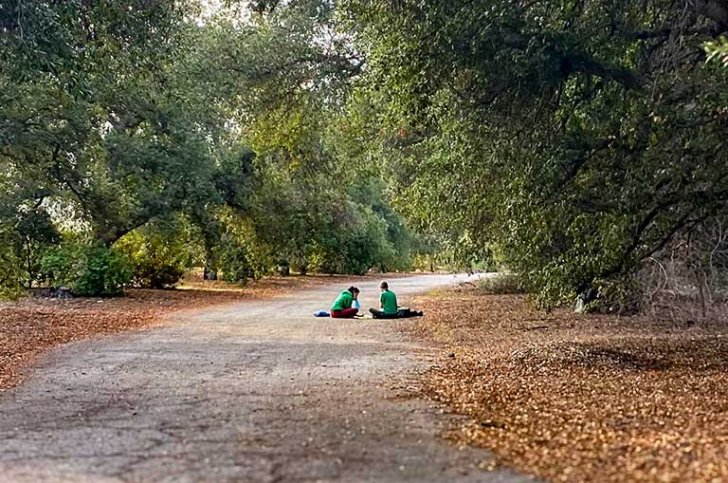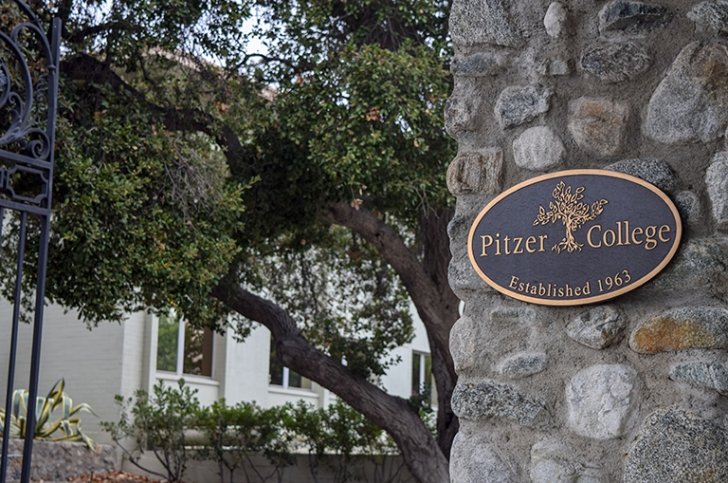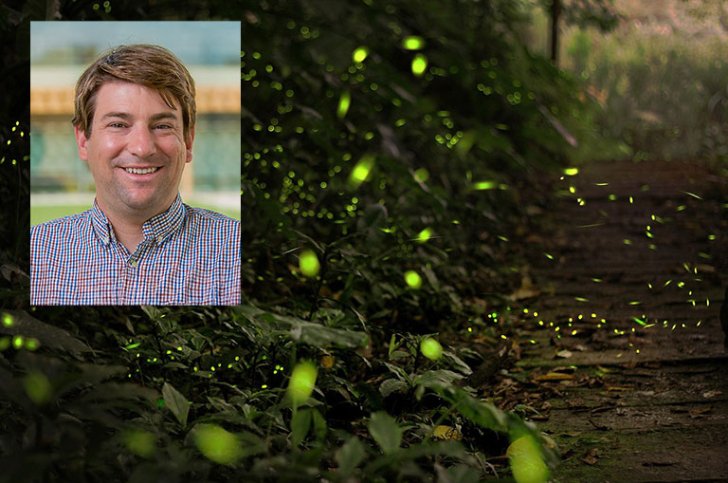Introducing New Faculty in Humanities and STEM at Pitzer
New professors start teaching and current faculty receive promotions in 2024–25
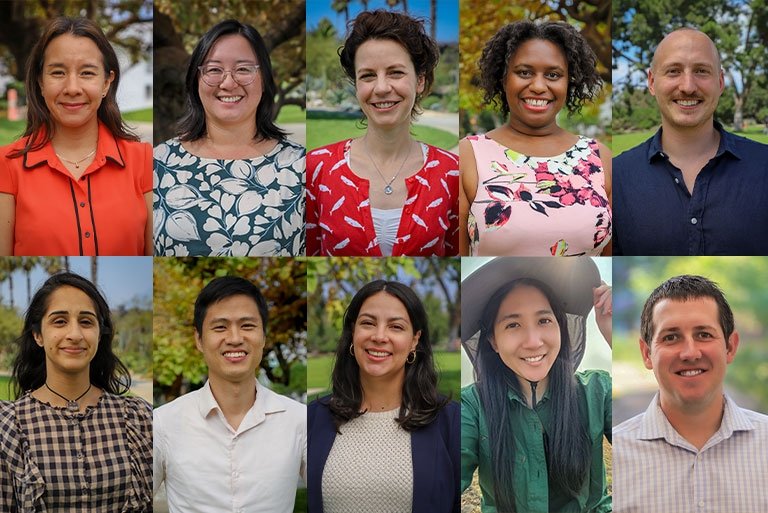
Ten new tenure-track faculty have joined the Pitzer community of scholars this academic year. Their fields include economics, media studies, biology, Africana studies, philosophy, mathematics, chemistry, environmental science, and environmental analysis.
Not limited by academic silos, these professors take an interdisciplinary approach to their scholarship. Their work engages contemporary issues and weaves together environmentalism and economics, history and philosophy, philosophy and sociology, biology and geology, and more.
In addition, seven current professors received promotions this fall. New faculty positions are listed below followed by recent faculty promotions.
New Faculty
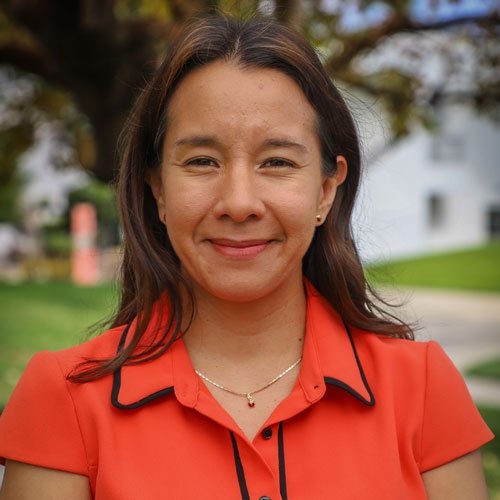
Assistant Professor of Economics Alma A. Bezares Calderón
- PhD in economics and politics and MS in economics from Claremont Graduate University
- MS in international studies from Univeristé de Montréal
- BS in international business and economics at the Tecnológico de Monterrey, in Mexico City
Alma A. Bezares Calderón researches issues related to resource allocation and conflict in resource-constrained areas, mainly in Latin America and Africa. She explores the political economy of environmental degradation and natural resource management and investigates how institutions, policies, and violence affect the distribution of resources among different segments of society based on salient aspects of their identity.
Calderón has conducted fieldwork in different regions of the Democratic Republic of the Congo (DRC), Côte d’Ivoire, Kenya, and Guatemala. She is currently working on issues linked to the political economy of deforestation, the historical roots of regional inequality in the DRC, and the effects of climate-related disasters on well-being in Guatemala.
Most recently Calderón taught in the Department of Economics at Whittier College. She is also a senior researcher in climate adaptation, migration, and displacement with the humanitarian organization Mercy Corps.
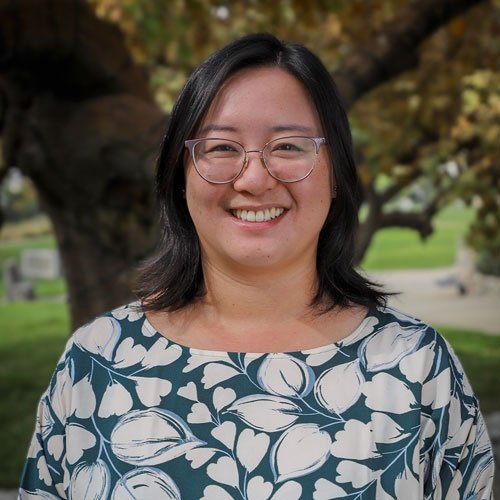
Assistant Professor of Media Studies Lisa Yin Han
- PhD and MA in film and media studies from University of California, Santa Barbara
- BA in English from Princeton University
Lisa Yin Han’s research is informed by a dedication to environmental and social justice as well as a background in critical media studies. Her work is situated at the intersection of environmental media studies, science and technology studies, and the energy humanities.
Han’s first book, Deepwater Alchemy: Extractive Mediation and the Taming of the Seafloor (University of Minnesota Press, 2024), examines relationships between deep ocean media operations and extractive industries. Han has also published work on medical media and internet freedom. Her work has appeared in Media + Environment, Configurations, and Communication, Culture and Critique.
Han most recently taught as an assistant professor of film and media studies at Arizona State University. She is also an affiliate of the Humanities for Environment North American Observatory and a reviews editor for the Journal of Environmental Media.
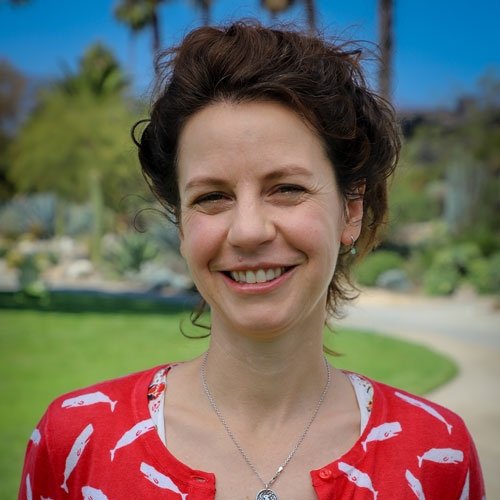
Assistant Professor of Biology Ashley Heers
- PhD in organismal biology and ecology from University of Montana
- BS in biology and geology from University of California, Davis
Ashley Heers explores the origins of flight using birds and their dinosaur ancestors as a focal group. What is the advantage of the rudimentary locomotor structures in developing or evolving animals, such as the “protowings” of young birds or extinct dinosaurs? Heers considers questions like these to be crucial to understanding vertebrate biology.
Heers’ research combines biological, paleontological, and engineering disciplines. She uses experimental, 3D visualization, and biomechanical modeling tools and also applies her findings to extinct dinosaurs through musculoskeletal modeling.
Heers was a postdoctoral fellow at the Royal Veterinary College and Richard Gilder Graduate School at the American Museum of Natural History. Heers has received support through the National Science Foundation’s (NSF) Postdoctoral Research Fellowship and Career grant programs. Before joining the Pitzer-Scripps Department of Natural Sciences, Heers was an assistant professor of biology at California State University, Los Angeles.

Assistant Professor of Africana Studies Stephanie Jones
- PhD in sociology from University of California, Irvine
- MA in sociology from Northern Illinois University
- BA in sociology from University of California, Merced
Before arriving at Pitzer, Stephanie Jones was a UC presidential postdoctoral scholar at University of California, Riverside. Her work focuses on housing inequality as an anti-Black project in Oakland to understand how housing is racialized and how Blackness is coded through housing. Jones builds a framework for Black geographies as people are being displaced. She argues that meaningful social change requires understanding that current housing crises are shaped by historical anti-Black projects.
Jones is originally from Oakland, California, where she conducted research for her dissertation. Her research is shaped by more than 15 years as a scholar and community organizer. She continues to investigate how Black geographies inform how scholars and advocates understand space and the ways people experience these spaces.
Jones focuses on liberatory educational approaches through strategies rooted in critical pedagogy. Her favorite classrooms are loud classrooms, where students can theorize and engage their own questions about the world.
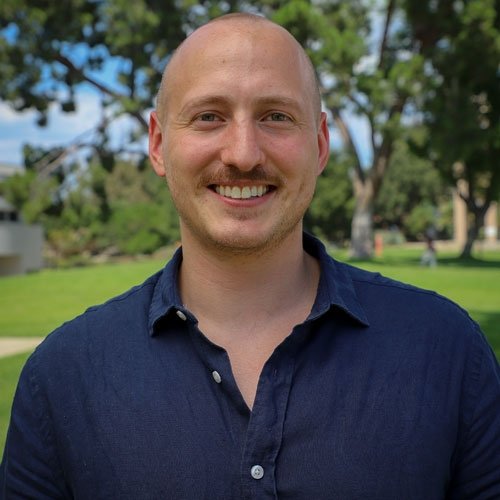
Assistant Professor of Philosophy Thomas Lambert
- PhD and MA in philosophy from Princeton University
- BA in philosophy from St. Olaf College
Thomas Lambert was most recently a postgraduate research associate in the Department of Philosophy at Princeton University. His interests lie at the intersection of ethics, moral psychology, and the philosophy of action.
Lambert seeks to understand what it means to live well and how various forms of agency contribute to (or detract from) the good life. He primarily approaches these questions through the history of philosophy. His published work to date has focused on understanding Friedrich Nietzsche’s fascinating—and occasionally unsettling—attempts to answer them. Lambert’s writing has appeared in Inquiry, The Agonist, and The Journal of Nietzsche Studies.
Lambert has worked extensively with students in societal contexts ranging from community college to the Ivy League to the federal prison system. He strives for a student-centered pedagogy that enables learners not only to engage with “the big questions” but also to hone valuable, transferrable skills.
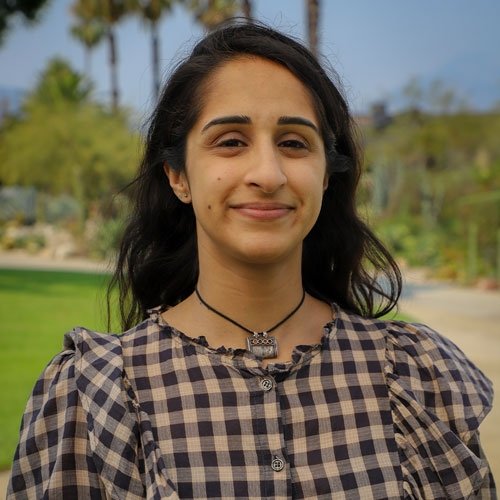
Assistant Professor of Mathematics Shriya Nagpal
- PhD and MS in applied mathematics from Cornell University
- BS in mathematics from Trinity College
Shriya Nagpal’s research uses tools from network theory and dynamical systems to study synchronization in networks of coupled phase-oscillators. She has applied these mathematical concepts to real-world challenges in energy and electricity. Her recent publications include “Designing for Robustness in Electric Grids via a General Effective Resistance Measure” in IEEE Transactions on Control of Network Systems and “A continuous refinement technique for wind farm layout optimization” in Renewable Energy.
Nagpal has research interests in complex networks, optimization and control, and graphon theory. She is also passionate about teaching and has received graduate teaching awards from the Department of Mathematics and the Department of Computer Science at Cornell University. As a teaching assistant at Cornell, Nagpal offered classes such as Modeling with Calculus for the Life Sciences, Introduction to Computing Using Python, and Calculus for Engineers.

Assistant Professor of Chemistry Jia-Ahn Pan
- PhD in materials chemistry from University of Chicago
- BS in chemistry and mathematics from Bates College
As a postdoctoral scholar at Lawrence Berkeley National Laboratory, Jia-Ahn Pan worked on developing novel ligands for colloidal upconverting nanoparticles (UCNPs). UCNPs have unique optical properties that can be used in microscopy, sensing, and photonics. Pan most recently co-authored an article about UCNPs that was published in the Journal of the American Chemical Society last spring.
Pan also studied and developed stimuli-sensitive ligands for patterning of colloidal nanocrystals as a graduate researcher at the University of Chicago. Pan’s work has recently appeared in Accounts of Chemical Research and Nano Letters. He looks forward to engaging students through teaching and research.
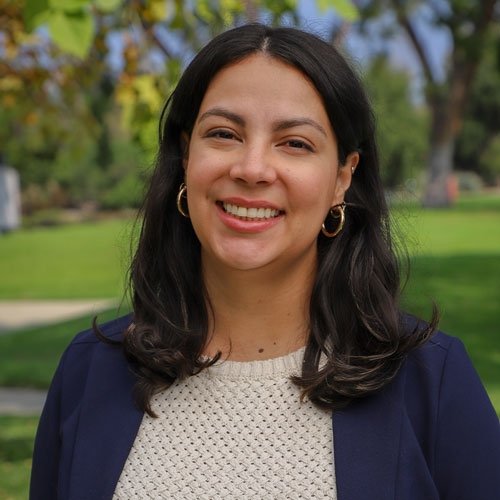
Assistant Professor of Environmental Science Veronica Padilla Vriesman
- PhD in Earth and planetary sciences from University of California, Davis
- BS in geology and Spanish from Colgate University
Vriesman is a marine scientist and paleobiologist with interests in climate change and biomineralization, which is the process by which living organisms produce minerals. Vriesman studies connections between marine shells and ocean changes through time. She is especially interested in environmental impacts on bivalve biomineralization. Her research uses the shells of marine mollusks to gauge their responses to changing climates through time to contextualize modern changes.
While working on her PhD at the Ocean Climate Lab at UC Davis, Vriesman studied the California mussel shell to evaluate its utility as a paleoceanographic archive. She received support from the NSF Graduate Research Fellowship. Vriesman is a Latina scientist committed to anti-racism and diversity, equity, and inclusion in STEM and academia. Before joining the Pitzer-Scripps Department of Natural Sciences, Vriesman was an assistant professor in the Department of Geosciences at Oberlin College.
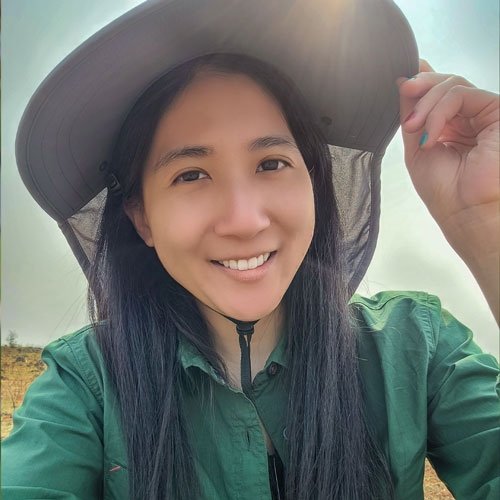
Assistant Professor of Environmental Analysis Jo Ann Wang
- PhD in anthropology from Stanford University
- MA in anthropology and BA in public health and sociology from National Taiwan University
Jo Ann Wang is an interdisciplinary scholar trained in socio-cultural anthropology, history, and science and technology studies. She is interested in understanding what moves people to place-based, environmentally engaged collective action and the cultural politics of such action. Her ethnographic and archival research in Malaysia and Southeast Asia engages with socio-cultural theories of oil and post-oil development, rural modernity, and diaspora-minority identity formation.
Informed by her experience of growing up in a rural neighborhood impacted by refinery and petrochemical operations in Southern Taiwan, she is committed to engaged research and action-oriented pedagogy that advance environmental justice.
Before arriving at Pitzer, Wang was a Stanford Humanities Center Next Generation Scholar and a PhD candidate in the Department of Anthropology at Stanford University. Her dissertation examines downstream oil and gas development controversies and environmental activism in post-colonial and multi-ethnic Malaysia.

Assistant Professor of Biology Zachary Wilson
- PhD in molecular, cellular, and developmental biology from University of Colorado Boulder
- BS in biochemistry and molecular biology from Lewis & Clark College
Zachary Wilson is a cell and molecular biologist with more than 14 years of research experience. Wilson investigates how eukaryotic cells respond to stress and how organelles inside cells remove damaged components to restore cell health. His experience in cell biology includes parasitology, membrane trafficking, mitochondrial biology, and cell aging. Wilson has also taught and mentored in both the lab and classroom with students ranging from high school to medical school.
Wilson was a postdoctoral research fellow and faculty mentor in the Biochemistry Department of the University of Utah, where he studied mitochondrial stress response pathways in budding yeast. His research has been supported by the American Heart Association, American Cancer Society, and the United Mitochondrial Disease Foundation. Wilson will begin teaching in the Pitzer-Scripps Department of Natural Sciences in spring 2025.
Faculty Promotions
Pitzer has awarded promotions to seven faculty members in classics, economics, art, urban studies, sociology, Chicano/a-Latino/a transnational studies, and chemistry.
Michelle Berenfeld has been promoted to full professor of classics with tenure. Since 2010, Berenfeld has shared her expertise in archaeology of the ancient Mediterranean, ancient urbanism, the eastern Roman empire, and more. Her recent courses include The Roman Empire in the East, Greek Art and Archaeology, and Classical Mythology.
Menna Bizuneh is now full professor of economics with tenure after teaching at Pitzer since 2014. Bizuneh became the first Pitzer professor to receive the American Council on Education Fellowship in 2023–24. She is an associated faculty of the European Center of California. Her recent courses include International Finance, International Trade, Time Series Analysis, and Macroeconomic Theory.
Sarah Gilbert has been promoted to associate professor of art with tenure after teaching at Pitzer since 2014. Gilbert is an interdisciplinary artist/scholar who explores changing definitions of the human and posthuman. Her recent courses include Sustainable Sculpture, Art as Idea as Art, and Engineering Materials.
Tessa Hicks Peterson is now full professor of urban studies. She is the director of CASA Pitzer and assistant vice president, community engagement. Hicks Peterson is a co-editor of the recently published book Practicing Liberation: Transformative Strategies for Collective Healing & Systems Change and the companion workbook Practicing Liberation: Radical Tools for Grassroots Activists, Community Leaders, Teachers, and Caretakers Working Toward Social Justice.
Jessica Kizer has been promoted to associate professor of sociology with tenure. Her recent courses include Sociology and its View of the World, Race and Ethnic Relations, and Sociology of the Family. She has been published in Social Forces, Journal of Lesbian Studies, and Socius.
Suyapa Portillo Villeda ’96 is now full professor of Chicano/a-Latino/a transnational studies after teaching at Pitzer since 2012. Her research interests include gender and labor history in the Americas; Central American immigrants and migration; Honduras and Hondurans in the U.S.; and more. Her book Roots of Resistance won the 2021 Sara A. Whaley Prize from the National Women’s Studies Association. www.suyapaportillo.com
Ethan Van Arnam has been promoted to associate professor of chemistry with tenure. Van Arnam’s lab recently received a $400,000+ R15 grant from the Institute of General Medical Sciences at the National Institutes of Health. His research is investigating potential disease-fighting molecules in ants.
News Information
Published
Author
Bridgette Ramirez
